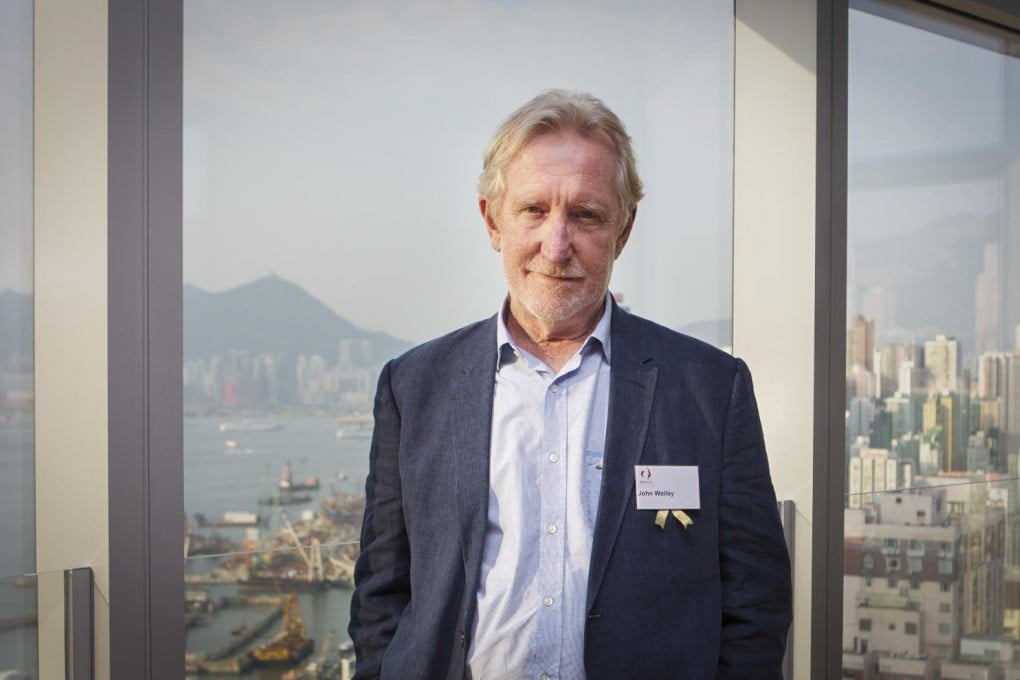My life: John Weiley
The Australian filmmaker, in town to discuss his controversial documentary on the Sydney Opera House, talks movies, memories and mentors with Robby Nimmo

B I grew up in Grafton, a town on the northern rivers of New South Wales (in Australia). It's best known for hosting a jacaranda festival. These verdant, lilac-coloured trees are related to the African flame tree and they create a canopy over many of Grafton's main streets in summer time - it's postcard stuff. As the highway bypassed it, in many ways it became the land that time forgot. But, when I was growing up, it was considered a prosperous town. My father was one of the town's best-known characters. He was a publican, the mayor and a member of parliament in Sydney, 12 hours away by road.
My dad, Bill, was known as The Professor. People would seek out his wisdom on all sorts of things. One day, a farmer brought in a mysterious rock he'd found on his large property, befuddled by the fact it had fallen out of the sky. My father realised it was a meteor, and it's still in a museum today. Old Bill had a penchant for Russian literature and growing up in the pub with my five siblings was like living in a Tolstoy novel. We had several servants and cooks fawning over us, adding to the list of protagonists. One of my sisters became a nurse and married a doctor, the other married a solicitor, one became a nun and I became a filmmaker.
When I first went to London, in the early 1960s, my first job was working for Sid Bernstein, who had not long ago started up Granada Television. I was only about 22 when I started making a film about the Lusitania (a British ocean liner). Everything that could go wrong with it did, as can happen when you are relying on variables such as unpredictable weather in the Irish Sea to recreate a ship's sinking. I was worried that Sid would be displeased. He called me aside afterwards and said, "I don't care if a film is over budget if it's a good film. But every pound I spend over budget on a bad film is a bad investment." Luckily, he rated it.
My next post was at the BBC, making feature documentaries. My boss was David Attenborough. I pitched the idea of making a film about the Sydney Opera House. He gave the project the green light in spite of opposition by the NSW government and the ABC (Australian Broadcasting Corporation).
Australia back then was a cultural desert. People thought we had beautiful beaches and everything we needed. They didn't see the need for an expensive opera house built on a site they were used to seeing as a tram shunting area. During all this brouhaha, I was sharing a house with a few other people in Sydney's Paddington, including Lin, the daughter of the opera house's architect, Jorn Utzon. Lin and I have remained friends. I know she was pleased that the Australian government made peace with Jorn in 2006 and apologised for not having the foresight to build the Opera House in a way that remained totally true to his magnificent vision. This was a cathartic closure that, I suspect, would otherwise have remained a gaping wound up until his death in 2008.
In the late 60s, when I was in my early 20s, I spent a year making Autopsy on a Dream (Weiley's film about the Sydney Opera House). It aired only once before the BBC was instructed to cut it up and dispose of it. No one ever told me why. A misfiled copy was discovered recently and, 45 years after it was made, the film had its Australian premiere at the Opera House.